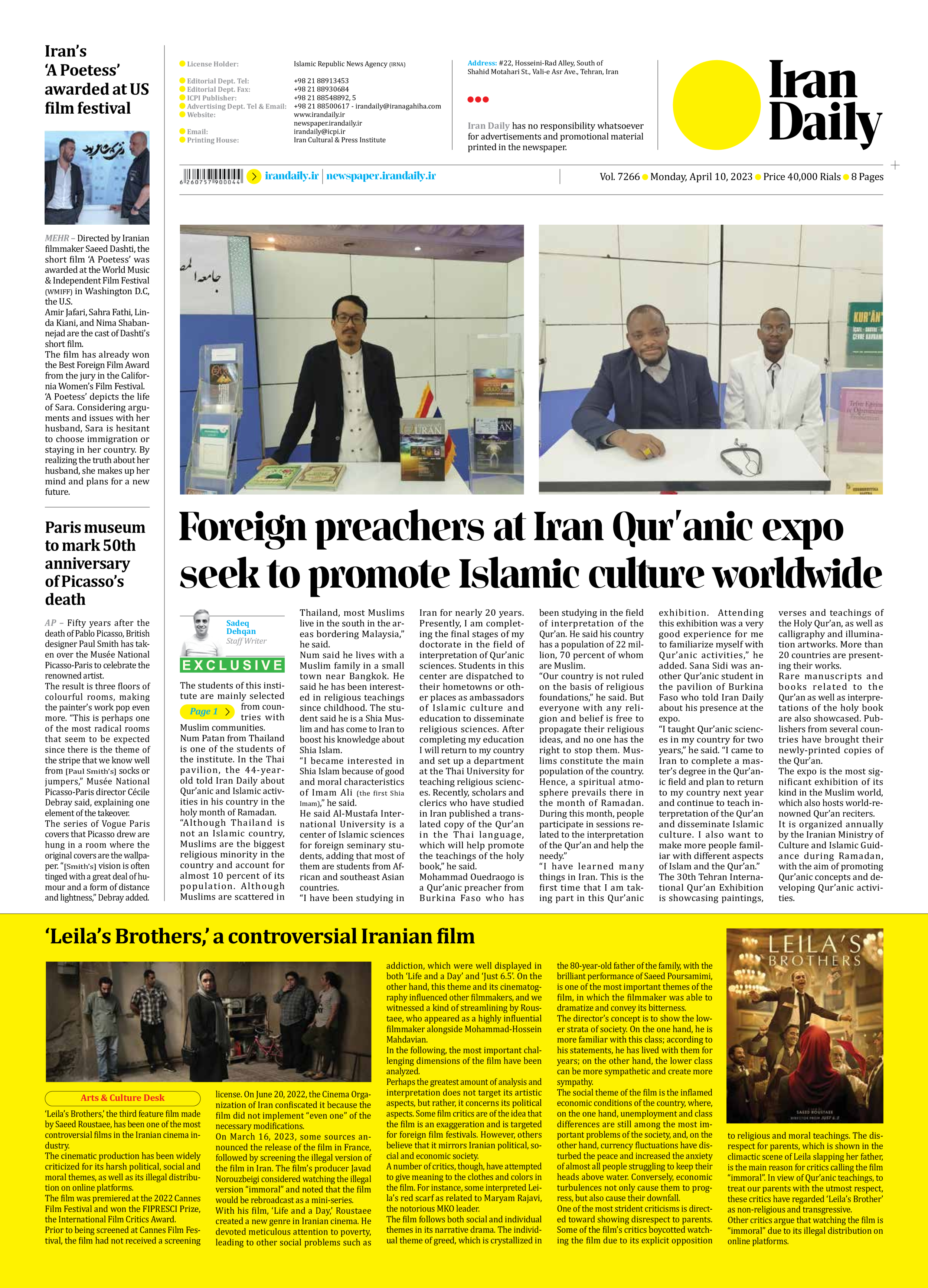
‘Leila’s Brothers,’ a controversial Iranian film
The cinematic production has been widely criticized for its harsh political, social and moral themes, as well as its illegal distribution on online platforms.
The film was premiered at the 2022 Cannes Film Festival and won the FIPRESCI Prize, the International Film Critics Award.
Prior to being screened at Cannes Film Festival, the film had not received a screening license. On June 20, 2022, the Cinema Organization of Iran confiscated it because the film did not implement “even one” of the necessary modifications.
On March 16, 2023, some sources announced the release of the film in France, followed by screening the illegal version of the film in Iran. The film’s producer Javad Norouzbeigi considered watching the illegal version “immoral” and noted that the film would be rebroadcast as a mini-series.
With his film, ‘Life and a Day,’ Roustaee created a new genre in Iranian cinema. He devoted meticulous attention to poverty, leading to other social problems such as addiction, which were well displayed in both ‘Life and a Day’ and ‘Just 6.5’. On the other hand, this theme and its cinematography influenced other filmmakers, and we witnessed a kind of streamlining by Roustaee, who appeared as a highly influential filmmaker alongside Mohammad-Hossein Mahdavian.
In the following, the most important challenging dimensions of the film have been analyzed.
Perhaps the greatest amount of analysis and interpretation does not target its artistic aspects, but rather, it concerns its political aspects. Some film critics are of the idea that the film is an exaggeration and is targeted for foreign film festivals. However, others believe that it mirrors Iranian political, social and economic society.
A number of critics, though, have attempted to give meaning to the clothes and colors in the film. For instance, some interpreted Leila’s red scarf as related to Maryam Rajavi, the notorious MKO leader.
The film follows both social and individual themes in its narrative drama. The individual theme of greed, which is crystallized in the 80-year-old father of the family, with the brilliant performance of Saeed Poursamimi, is one of the most important themes of the film, in which the filmmaker was able to dramatize and convey its bitterness.
The director’s concept is to show the lower strata of society. On the one hand, he is more familiar with this class; according to his statements, he has lived with them for years; on the other hand, the lower class can be more sympathetic and create more sympathy.
The social theme of the film is the inflamed economic conditions of the country, where, on the one hand, unemployment and class differences are still among the most important problems of the society, and, on the other hand, currency fluctuations have disturbed the peace and increased the anxiety of almost all people struggling to keep their heads above water. Conversely, economic turbulences not only cause them to progress, but also cause their downfall.
One of the most strident criticisms is directed toward showing disrespect to parents. Some of the film’s critics boycotted watching the film due to its explicit opposition to religious and moral teachings. The disrespect for parents, which is shown in the climactic scene of Leila slapping her father, is the main reason for critics calling the film “immoral”. In view of Qur’anic teachings, to treat our parents with the utmost respect, these critics have regarded ‘Leila’s Brother’ as non-religious and transgressive.
Other critics argue that watching the film is “immoral” due to its illegal distribution on online platforms.







